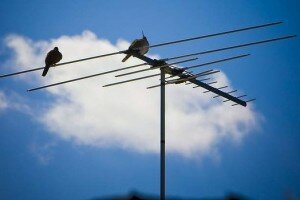
Image: smh.com.au
HumanIPO has learnt StarTimes customers have been complaining over the disruptions to services. In Meru, for example, the Chinese-owned signal distributor switches off services at midnight and resumes them at 6am.
In Nanyuki, a number of consumers who have purchased their set top boxes claim they have yet to receive any signals, despite having paid for up to three months.
This is despite the company having announced in January it had expanded to 13 new towns, including Nanyuki. StarTimes has however denied these claims.
A number of these angry customers have threatened legal action against the distributor, seeking compensation.
StarTimes says it is aware of the problems in Meru, which it says have occurred as a result of power challenges in and around the transmission station.
“We have however dispatched a technical team that is currently on the ground and it is our intention to sort out the problem ASAP. We endeavour to give our subscribers value for their money and we regret the inconvenience that has been encountered,” said StarTimes chief executive officer (CEO) Leo Lee.
The company says it is yet to directly receive complaints from Nanyuki with the technicians on site confirming signal strength was good.
“This query could possibly be related to the position that the subscriber has aligned his/her antenna to, depending with the location, external antenna is required to get the crystal clear digital television reception. We would therefore request the subscriber to reach us on 0719 077077 for us to send a technician who will attend to the challenge at no extra cost,” said Lee.
Zuku has also been embroiled in the outages debate, having seen an increasing number of complaints over signal outages.
On Sunday April 6 several Zuku customers went the entire day without any cable television reception, with the company saying it was experiencing technical hitches.
There have also been reports of DVBT1 set-top boxes still being sold despite the Communications Commission of Kenya (CCK) having given licenses for the sale of only DVBT2 type digital receivers.
According to the Consumers Federation of Kenya (COFEK), the regulator is to blame for having failed to ensure compliance.
“It is unfortunate. We blame CCK for failing in attaining enforcement and compliance surveillance on its licensees,” said COFEK.
“Operators doing so are in blatant contravention of the Consumer Protection Act 2012 and specifically Section 5. We are putting them on notice to stop or lest we will be seeking compensation for downtime as well as general damages to consumers under the Act as well as Article 46 of CoK.”
Other consumers are complaining of the degraded service as a result of the weather with satellite dish users unable to enjoy services during the rainy season.
Every time it rains @ href="https://twitter.com/dstv_kenya">dstv_kenya goes off. How do I recover lost time yet i pay upfront?
— Carole Kimutai (@CaroleKimutai) https://twitter.com/CaroleKimutai/status/320965419265564672">April 7, 2013
DStv and Zuku declined to respond to requests for clarification from HumanIPO, while efforts to reach the director general of the CCK were not successful.





















































